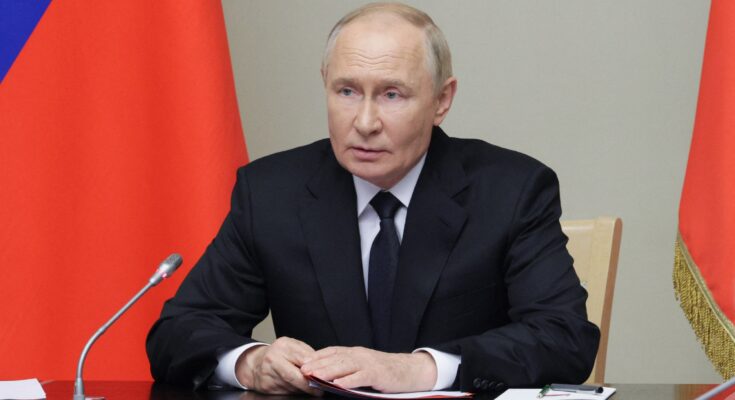Russian President Vladimir Putin’s recent war machine purge of his top military and defense officials is part of an ongoing surge in corruption and bribery cases in the country amid the war in Ukraine, according to analysis by an independent Russian news outlet.
Verstka, which was founded shortly after the war began, said in analysis published on August 13 that the number of bribery cases in Russia has increased by one-and-a-half times since before the conflict started in February 2022.
There were 3,202 bribery cases registered in Russia in the first half of 2021, while 4,958 cases were registered between January and June this year, marking a 55 percent rise, the outlet said.
“The armed forces and the military-industrial complex remain the drivers of corrupt practices due to their lack of transparency,” Verstka found.
Newsweek has contacted Russia’s Defense Ministry for comment by email.
A number of prominent military officials have been detained in recent months, including former Deputy Defense Minister Timur Ivanov, who was arrested on April 23 on suspicion of taking bribes.
Sergei Shoigu, Russia’s long-standing defense minister, was also abruptly removed from his post in May. Putin replaced him with economist Andrei Belousov.
Other prominent arrests include the detention of Vladimir Verteletsky, a defense ministry official, in May. Russia’s Investigative Committee said he stands accused of taking a bribe in relation to “work that was not carried out” under a government contract in 2022.
Vadim Shamarin, deputy chief of the Russian General Staff, was also detained in May “in connection with the case of alleged fraud,” Russian newspaper Kommersant reported. Shamarin is reported to be a top aide to Russia’s top general, Chief of the General Staff Valery Gerasimov, and had served as deputy chief of the Russian General Staff since 2021.
Yuri Kuznetsov, the head of the Russia’s Defense Ministry’s personnel department, was also detained in May on suspicion of taking a bribe, while Major General Ivan Popov, who had headed Russia’s 58th Army, was “arrested on suspicion of fraud,” state news agency Tass reported on May 21.
And in late July, Andrei Belkov, the director of the Defense Ministry’s Military Construction Company, was accused of abuse of power in the execution of a state defense order, Kommersant reported, citing security agency sources. He was detained for purchasing a tomograph at an inflated price while he was the head of another military organization under the defense ministry—the Main Military Construction Directorate for Special Facilities.
Andrei Soldatov and Irina Borogan, leading experts on Russia’s security services, said some of the arrests have amounted to “the most serious attack on the Russian military” in Putin’s nearly 25-year rule.
